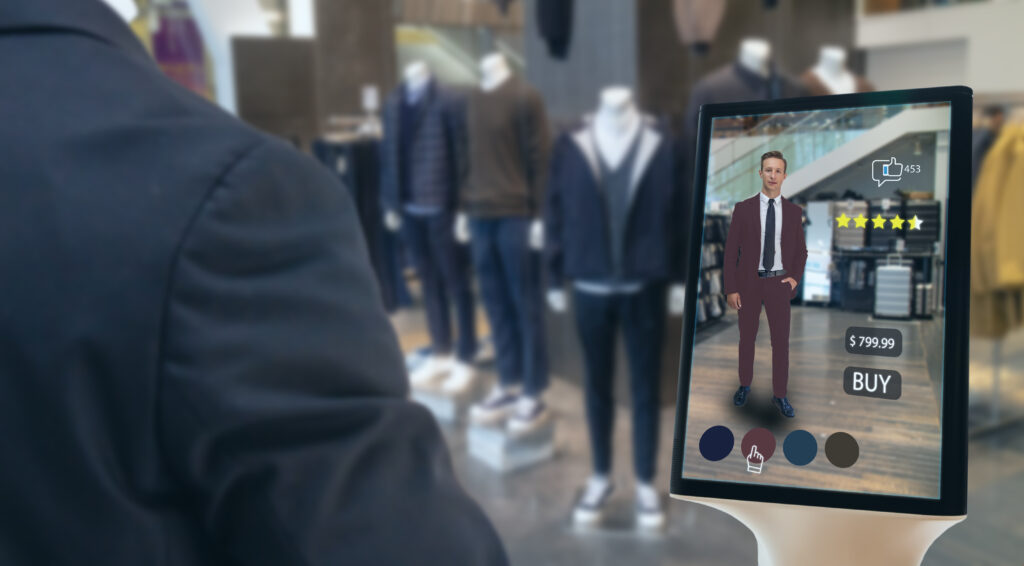The fashion industry is on the brink of a transformative era, and generative AI stands at the forefront of this revolution. As the world of fashion evolves, so does the technology that powers it. Generative AI, though in its infancy, promises to reshape the fashion landscape, offering unprecedented opportunities for innovation, efficiency, and customer engagement.

The Dawn of Generative AI in Fashion
Fashion weeks in global hubs like London, Milan, New York, and Paris have always been a spectacle of creativity and innovation. But imagine a future where the designs showcased are a harmonious blend of human creativity and the prowess of generative AI. This technology, which goes beyond mere data classification to create entirely new content, could soon be the driving force behind faster production cycles, efficient sales strategies, and enhanced customer experiences.

Generative AI, exemplified by platforms like OpenAI’s ChatGPT, encompasses algorithms that craft content ranging from text and images to simulations and videos. While the fashion industry has dabbled in AI and other cutting-edge technologies like the metaverse and NFTs, generative AI remains largely uncharted territory. However, its potential is undeniable. McKinsey analysis suggests that in the coming years, generative AI could boost the fashion sector’s profits by a staggering $150 billion to $275 billion.
Generative AI in Action: Real-World Applications
Several compelling use cases for generative AI in fashion are already emerging:
- Product Development and Innovation: Generative AI can analyze vast amounts of unstructured data in real-time, offering insights that can guide design choices. For instance, designers can input sketches and desired details into a generative AI platform, which then produces a plethora of design variations. This not only accelerates the design process but also paves the way for unique, limited-edition product releases.
- Marketing: Generative AI can be a game-changer for marketing strategies. It can rapidly produce content for platforms like TikTok, identify patterns in viral content, and even craft personalized customer communications. Start-ups like CopyAI and Jasper AI are pioneering this space, offering tools that can generate diverse content types tailored to specific audiences.
- Sales and Consumer Experience: Generative AI can enhance customer service by powering advanced chatbots that provide personalized responses. It can also assist luxury brands in building long-term relationships with high-value customers, offering personalized recommendations and insights.
Embarking on the Generative AI Journey

For businesses keen on exploring generative AI, here are some steps to consider:
- Value-Driven Approach: Identify areas within your business where generative AI can offer the most significant value. Prioritize use cases based on their potential impact and feasibility.
- Risk Management: Be aware of the potential risks, from legal challenges around intellectual property to biases in AI systems. Establish processes to address these concerns proactively.
- Workforce Training: Equip your employees with the knowledge and skills to harness the power of generative AI. Programs like Levi Strauss’s machine learning boot camp serve as excellent examples of how businesses can upskill their workforce.
In fashion, generative AI is not just about automation; it’s about augmentation. It offers the fashion industry tools to accelerate processes, foster creativity, and enhance customer experiences. As the technology continues to evolve, it’s clear that generative AI will play a pivotal role in shaping the future of fashion.

Experienced Machine Learning, Artificial Intelligence, Data Strategy, Information Technology, and Shared Services Executive
Things that matter:
• five largest ML models created at P&G, with over 10,000 pipeline runs/year
• initiated and operated THE data labeling platform and services for ML at P&G, with 300+ projects and millions of annotations on the platform
• Generative AI strategy for the Global Business Units Shared Services for the Brand, R&D, Manufacturing, Supply Chain, Master Data + eComm functions
• Product Management leadership for enterprise-wide Cloud applications combining data and AI
Education
Harvard Business School Executive Education: Artificial Intelligence (Competing in the Age of AI).
Northwestern University: Executive Strategies to Unlock Enterprise Value in Artificial Intelligence
University of Bucharest: Master of Computer Science from the Faculty of Mathematics
CIIM – Master of Business Administration (MBA) with a focus on Finance
Key Certifications:
AWS Certified Machine Learning – Specialty
Azure ML Artificial Intelligence Certification
Data Camp Certified Data Scientist (Python Track)





